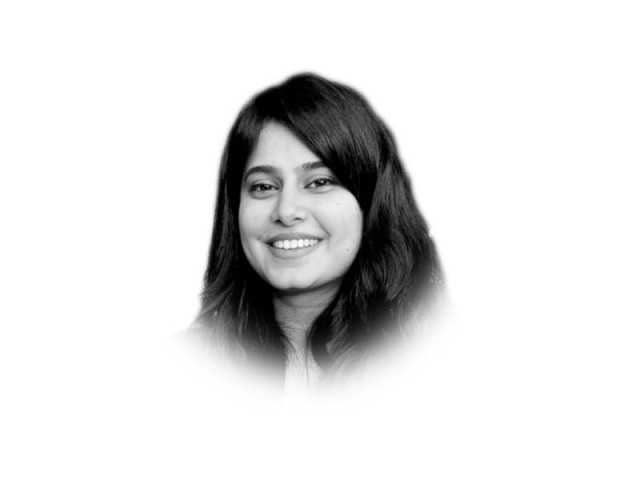The lies we tell in God’s name
In Pakistan, we have been witnessing the consequences of a majority that is deeply insecure in matters of faith

Where does hate start? When a child grows up in a country defined in opposition to “the other” who is always just about to attack, where the earliest stories of nationhood and homeland erupt from fear of having your identity — national and religious — squashed out, perhaps hate, in such a place, begins with a deep sense of insecurity.
In spite of the countless stories we are told of our country’s glory; of the successes of our elders who sought a separate homeland for us to thrive in without fear — what do we have? The daily suffering of those most vulnerable, whose only crime is not being of majority faith, is testament to the sham we are taught. The story of our country’s inception as a place where a minority faith is free to endure in safety is only based in romanticised and politically expedient imaginings if barbaric and mindless acts of violence continue to occur against those who are most vulnerable today. In Pakistan, for a while now, we have been witnessing the consequences of a majority that is deeply insecure in matters of faith. As if God requires protection from us mere nobodies, one mob against a single man imagines itself, bizarrely, morally justified.
What are we doing here? Where do we think these actions will take us? Have we done enough to honestly, and bravely, have a conversation among ourselves precisely on the most contentious matters of faith in our republic, and on the bearing our answers will have on the kind of citizenry we aim to be? We have seen a man tortured and burned alive, and this is hardly the only cruelty of its kind inflicted within our borders. As we continue to witness violence upon violence, how much can our minds take? How much can we claim to never forget? How much of it meaningfully moves us anymore?
The great tragedy of our time is multifold. We witness evil in real-time, and yet in spite of condemning it, feel powerless to change anything. We may share the values and beliefs of a religion, yet experience the cognitive dissonance of seeing horrible people claim to be its flag bearers, defining who is and is not deserving of Divine mercy.
Why is it that the prototypical Pakistani of particular gender and religious leaning feels like he is the most under attack now? Why is the greatest effort at political mobilisation one that is led by him? It is defeating to think that over and over again, what we witness is things not changing fast enough, of the old strengthening its grip over the new. Of those who have historically retained power, holding on to it, reminding us that this is how things are and how they always will be.
The tragedy within our tragedy is that this is a system that will continue to fail all parties involved. For those seeking God, what face can one show while upholding a system bent upon doling out judgement and punishments that mortals have no right to enact? For those seeking decency, what does it mean to maintain the family, when the foundations of the system, as is, are built on the blood and tears of its members, particularly the women it so claims to honour? For those seeking power, what does the current status quo afford, if it comes at the cost of human life, every passing day?
If those seeking to hold on to power, in spite of the damage they are causing, seek to attain a kind of immortality; immortality in the present moment, in attempts to prolong power as a way of prolonging life and distracting the mind from its worst anxieties of what is to come; or immortality in another realm, when claiming their violence in God’s name, I hope we will remember, as a collective, to raise a mirror to all such people and attempt to reflect to them the truth of their actions: the truth that sometimes the most evil and lost among us, pretend at being the most rightly guided. I hope at least, in spite of the powerlessness many of us feel, it will mean something for us to bear witness to wrong, as wrong.
Published in The Express Tribune, December 8th, 2021.
Like Opinion & Editorial on Facebook, follow @ETOpEd on Twitter to receive all updates on all our daily pieces.















COMMENTS
Comments are moderated and generally will be posted if they are on-topic and not abusive.
For more information, please see our Comments FAQ